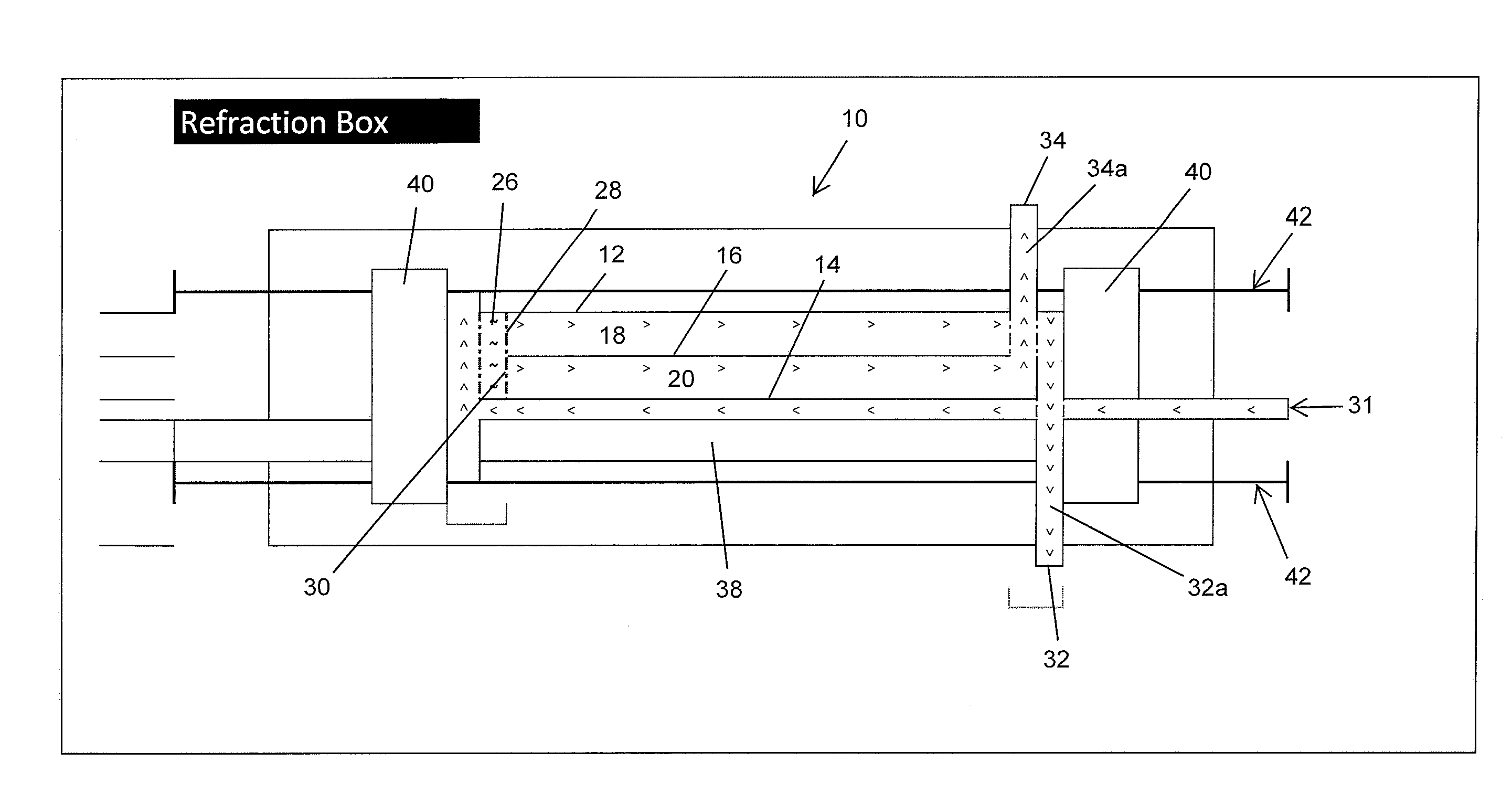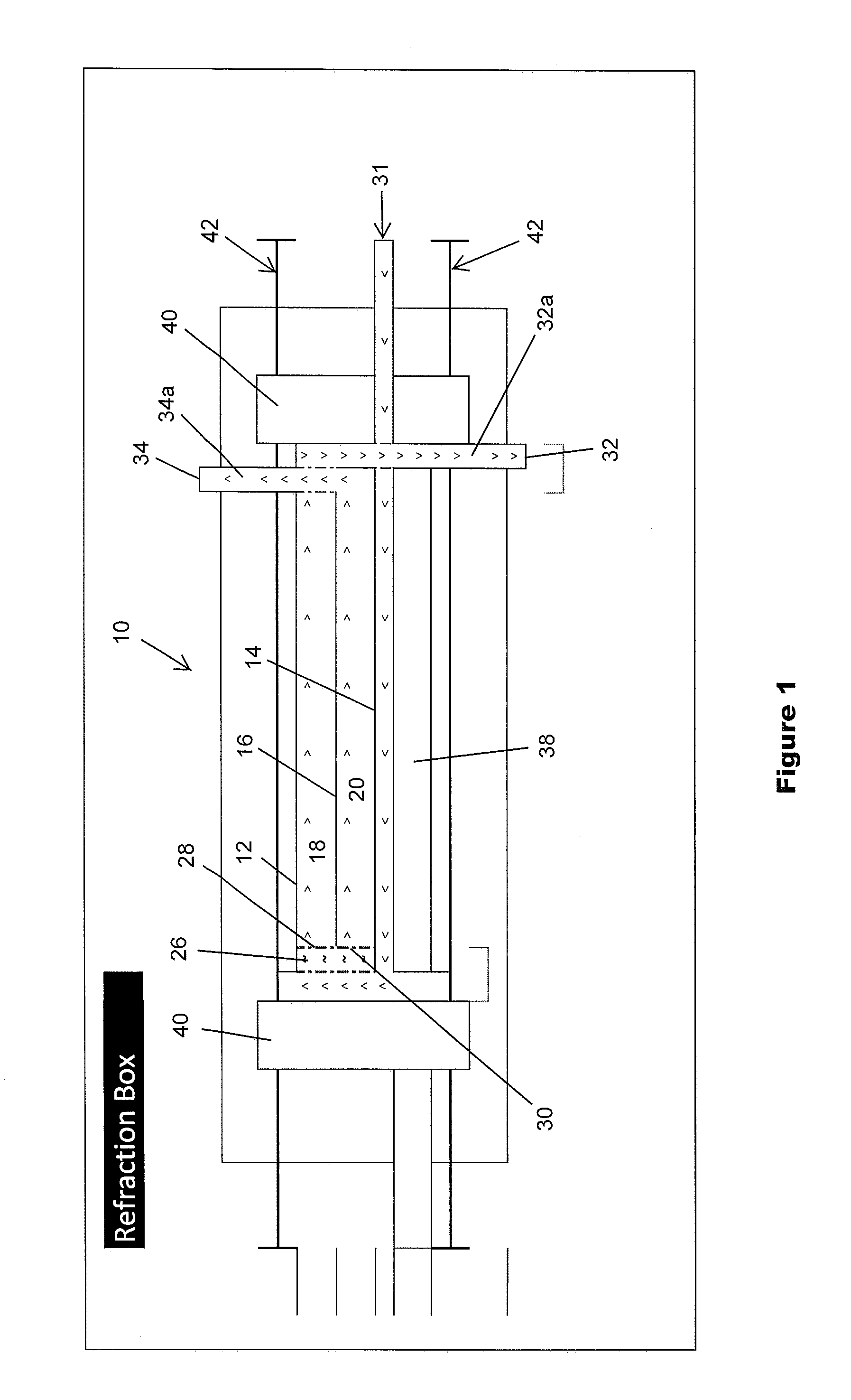Refraction Technology System
a technology of refraction and technology, applied in the field of fluid modification, can solve the problem that the modified fluids of the orp will naturally return to the orp, and achieve the effects of efficient and chemical-free cleansing and rinsing technique, superior results, and efficient production of modified orp fluids
- Summary
- Abstract
- Description
- Claims
- Application Information
AI Technical Summary
Benefits of technology
Problems solved by technology
Method used
Image
Examples
example 1
[0031]In Example 1, suspensions of Pseudomonas aeruginosa (Sample A), Salmonella sp (Sample B), Listeria monocytogenes (Sample C), Staphylococcus aureus (Sample D), Escherichia coli (Sample E) and Serratia marcescens (Sample F) were prepared and diluted to 100,000 fu / mL for inoculation. The level of each 6 inoculum suspension was tested by plating a dilution of the suspension containing 100 cfu / mL.
[0032]For each bacteria suspension (A-F), three 100 mL samples were prepared for comparative purposes. Each 100 mL sample was inoculated with 100,000 colony forming units (cfu) of the appropriate bacteria, resulting in 1,000 cfu of bacteria per mL of sample.
[0033]Each sample was then mixed with modified fluid prepared using the disclosed system 10 and method with an ORP value of approximately +700. The samples of each bacteria were tested at different intervals from the time of mixing with modified fluid: 1 mL of each sample was removed at 30 seconds, 2 minutes, 5 minutes and 10 minutes me...
example 2
[0036]FIG. 4 shows a photo time table depicting a test screen cleaning using the modified fluid treated with the disclosed oxidation refraction system 10. Fluid samples from the negative chamber (+700 ORP) were tested and displayed varying degrees of effectiveness.
[0037]FIG. 4A depicts the fully contaminated and dried filtration screen to be treated. FIG. 4B depicts the screen of FIG. 4A approximately 5 seconds after an initial rinse with the oxidized fluid. FIG. 4C depicts the screen 15 seconds after the initial rinse with oxidized fluid. FIG. 4D depicts the screen 20 seconds after the initial rinse. FIG. 4E depicts a fully cleaned screen, less than 30 seconds after the initial rinse with oxygen modified fluid. FIG. 4E further shows that the fluid draining from the filter is clear in appearance (clean).
[0038]The actual experimental photos shown in FIGS. 4A-4E and described above are an example of a test performed to eliminate the buildup and bacteria on a filtration screen used for...
PUM
| Property | Measurement | Unit |
|---|---|---|
| thick | aaaaa | aaaaa |
| current | aaaaa | aaaaa |
| voltage | aaaaa | aaaaa |
Abstract
Description
Claims
Application Information
 Login to View More
Login to View More - R&D
- Intellectual Property
- Life Sciences
- Materials
- Tech Scout
- Unparalleled Data Quality
- Higher Quality Content
- 60% Fewer Hallucinations
Browse by: Latest US Patents, China's latest patents, Technical Efficacy Thesaurus, Application Domain, Technology Topic, Popular Technical Reports.
© 2025 PatSnap. All rights reserved.Legal|Privacy policy|Modern Slavery Act Transparency Statement|Sitemap|About US| Contact US: help@patsnap.com



